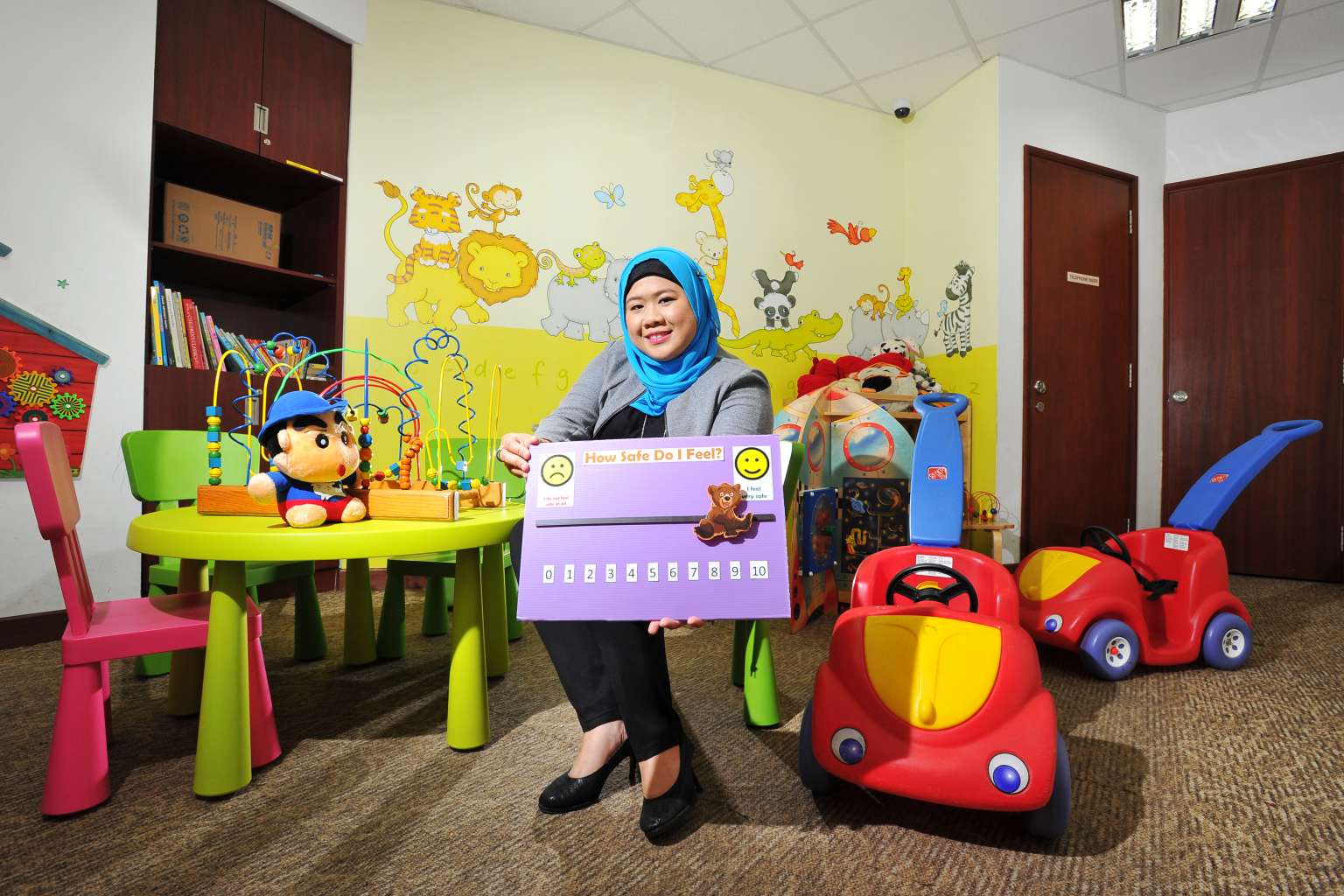Tackling hostile parents part of child protection work
Sign up now: Get ST's newsletters delivered to your inbox

Ms Firdawati Masri, 33, has been a child protection officer for the past 10 years. She has seen some serious abuse cases, such as a six-year-old girl who was burned with a heated metal spoon by her father and an 11-year-old girl who was made to live in a storeroom by her parents, who considered her a jinx. She was allowed out only for a daily bath – and to go to school.
ST PHOTO: LIM YAOHUI
Follow topic:
Parents are often hostile when the Ministry of Social and Family Development's (MSF) Child Protective Service (CPS) steps in to stop them from abusing their child.
And about one in six families challenges the CPS' actions, for example, to remove the child from his parents' care for his own safety.
In such cases, the CPS has to get the courts to decide where the child will stay, among other things.
CPS director Carmelia Nathen said bringing cases to court to get a care and protection order is the last resort.
This happens when parents refuse to cooperate with the CPS to address safety concerns for the child. Contested legal proceedings can drag for a few months to a year.
Said Ms Nathen: "This is not ideal as the intervention work and services for the family cannot take place expediently."
Two years ago, a couple who physically and emotionally abused their young son repeatedly went so far as to sue two child protection officers in their personal capacity.
After the CPS placed their son in a children's home, they challenged the decision in court.
When that failed, they filed a civil suit against the two CPS officers handling the case - a first-ever situation for CPS staff.
But the court dismissed the suit.
Ms Nathen told The Sunday Times that the CPS does not take a child away from his parents unless there are serious concerns.
Instead, it finds ways to keep the child safe at home - by roping in relatives and social workers, for example, to keep tabs and provide the help that is needed, and getting parents to address the causes that led to the abuse.
But if this does not work out, the CPS may move the child.
One such instance involved an eight-year-old boy who was repeatedly beaten with a back-scratcher by his mother, who was stressed by marital woes and having to look after the boy.
The mother agreed to get help to manage her stress and anger. A relative, among others, stepped in to help with some caregiving duties.
All was calm for half a year until the mother lost her temper again.
This time, the beatings were so bad that the boy's arm swelled. His school reported the incident to the CPS and the boy was placed in foster care.
While parents object to their child being taken away, separation is also traumatic for the child, said child protection officer Firdawati Masri.
So the CPS tries to place the child with someone he knows, like a relative or family friend. Otherwise he is placed in a children's home or with foster parents.
Still, as Ms Firdawati noted, some children want to live at home even if they are beaten: "Their parents are the only people they know."
Some abused children stay in foster care or in a children's home for years, until it is safe for them to go home.
But a small group do not get to go home at all as their parents have not changed their abusive ways.
Ms Nathen said CPS has placed some abused children up for adoption with their parents' consent. But there are also "very few" instances where children are placed for adoption without parental consent.
Said veteran social worker Sudha Nair, executive director of Pave: "Child protection work has come a long way. Now, we have moved to picking up cases even before serious abuse happens.
"I see the shift in the MSF in that it has realised it cannot do it alone. It needs the eyes and ears on the ground to help it."
Theresa Tan

